On January 23, the University of New England hosted a lecture from world-renowned political activist, academic, and author Angela Davis as part of its annual Martin Luther King Jr. Celebration.
“Bring More Chairs!”
Angela Davis Addresses Record Crowd as Keynote Speaker for UNE’s 32nd MLK Celebration
BY JENNIE ARANOVITCH
The most well-attended event in UNE’s history took place on January 23 in the Harold Alfond Sports Forum, where more than 1,500 students, faculty, staff, and community members gathered to watch legendary political activist Angela Davis deliver the keynote address at the University’s 32nd annual Martin Luther King Jr. Celebration. The event space quickly filled to capacity, spurring the impromptu setup of an additional room for livestreaming. Hundreds more attended a scheduled livestreaming of the lecture on the Portland Campus.
While the high turnout was shocking to some, the event’s coordinator, Erica Rousseau, M.A., UNE’s director of Intercultural Student Engagement, was not surprised. Having fielded hundreds of emails and phone calls in the months leading up the event, she knew to expect a crowd. “During set up, some people were asking, ‘Do you think we’ll need more chairs?’ And I said, “Yes! Bring all the chairs. Bring any chair you can find!” she says with a chuckle.
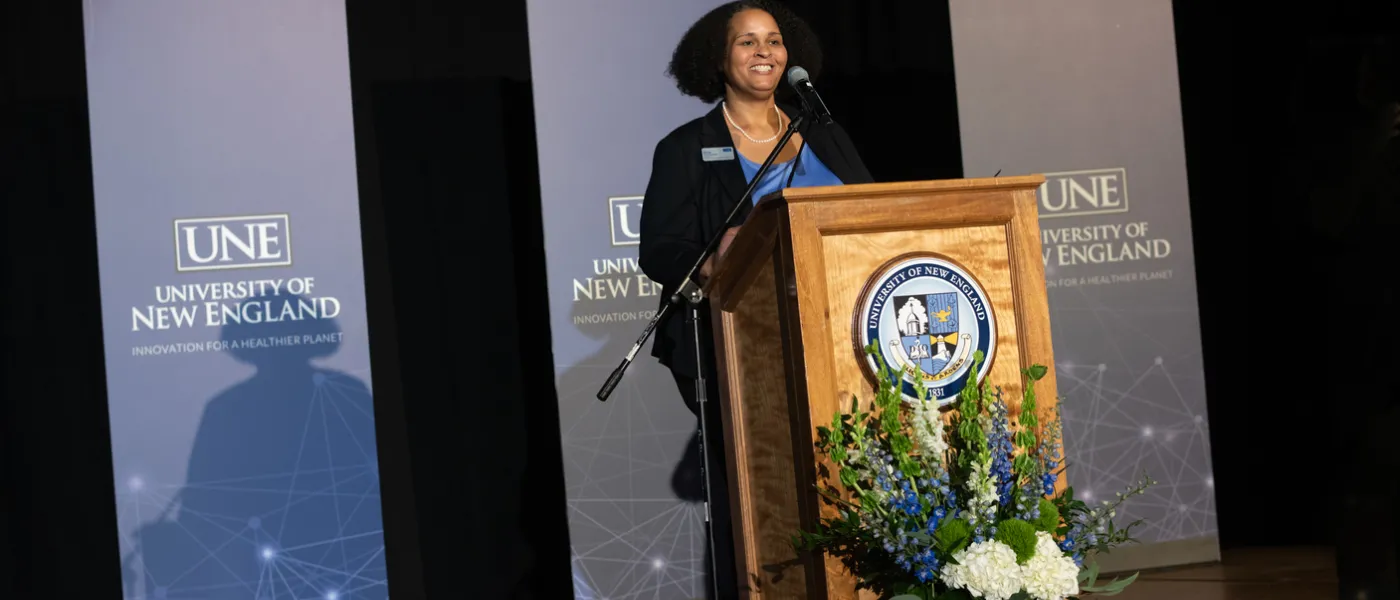
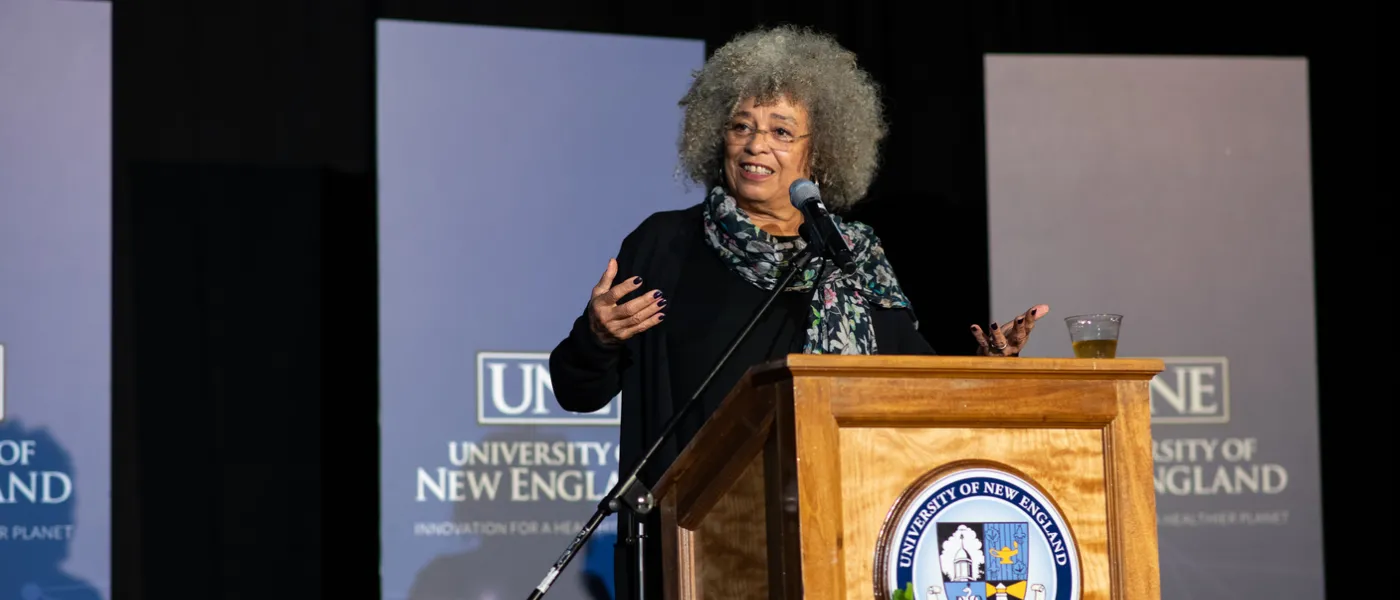
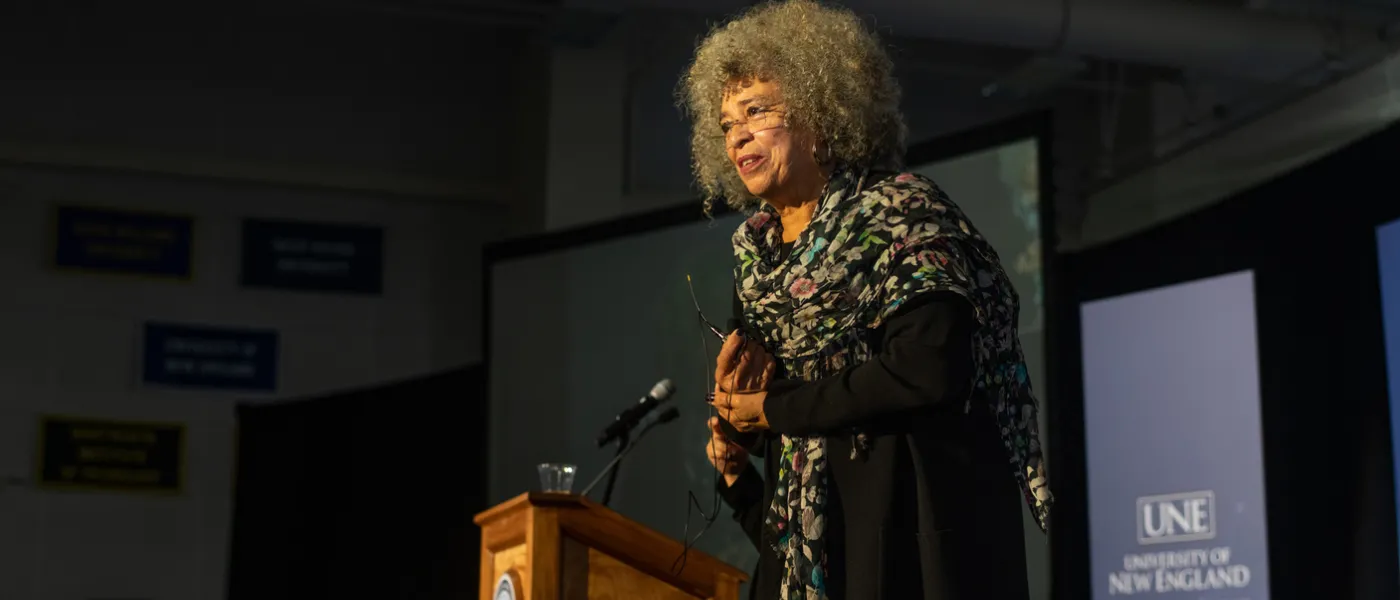
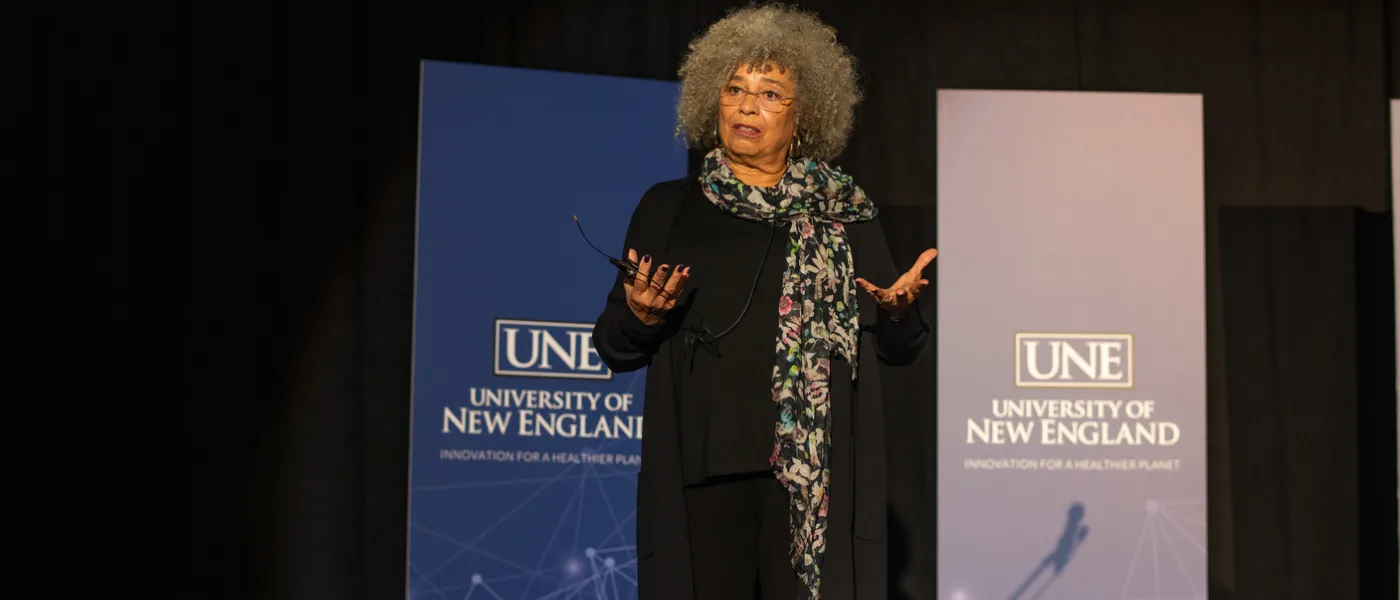
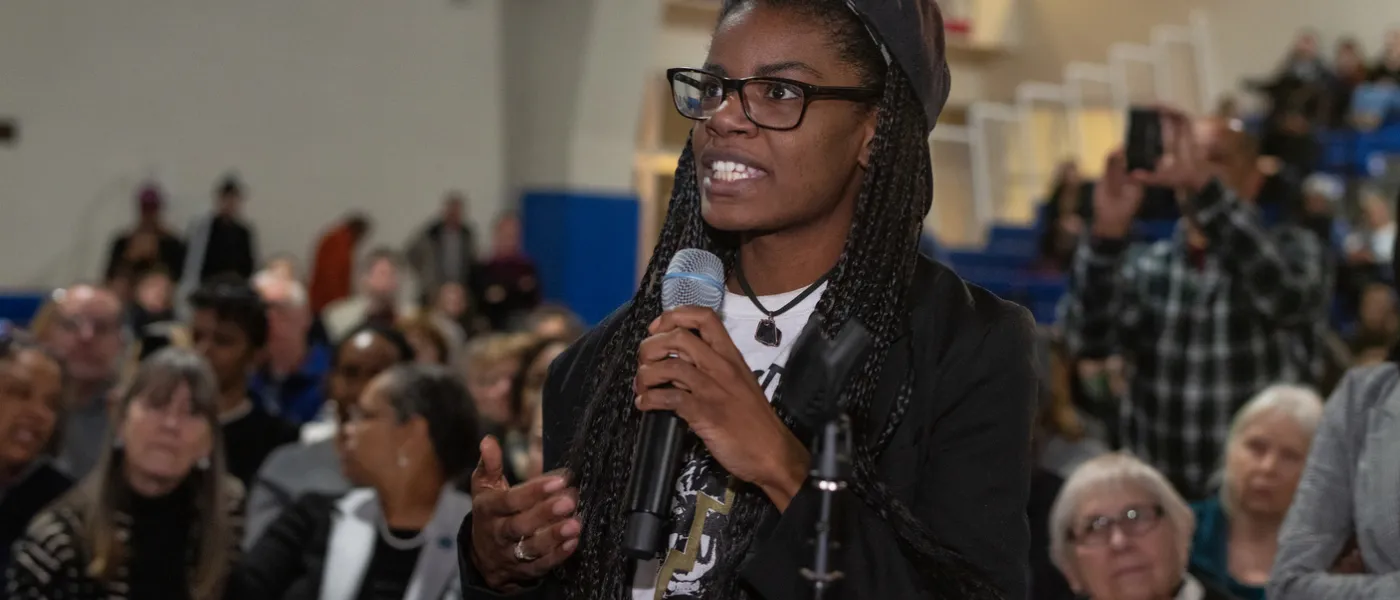
People journeyed from far and wide to attend the event; some even traveled from Canada. “There were people there who have been in the civil rights struggle since their youth, and I think that the students needed to see that. It was a very powerful event,” Rousseau shares.
In his opening remarks, President James Herbert welcomed the packed audience, expressing his deep honor in hosting Davis, whom he described as a “pivotal figure in the history of American activism.” He reflected on the day, nearly 55 years ago, when King made his historic visit to the campus, then part of UNE’s precursor institution St. Francis College. “Our campus has changed quite a bit since Dr. King’s visit. And our institution has changed as well. But our devotion to inclusion and creating a future of diversity and fairness has not wavered,” Herbert said.
He noted the University’s commitment to fostering a “welcoming, inclusive, and vibrant community,” a dedication articulated in UNE’s new strategic plan, and he recounted several relatively recent efforts made by UNE in support of diversity, such as the establishment of the annual Scholars of Color Welcome Breakfast, the launch of a Muslim Student Association, the addition of dining hall menu options that are sensitive to religious dietary restrictions, and the creation of new meeting spaces on both campuses for underrepresented students.
Rousseau had the distinct honor of introducing Davis, but, before doing so, she recognized the importance of the day and expressed her desire for the event to stimulate the exchange of ideas.
"I would like to mark this day as a starting point,” she said. “I hope that this lecture sparks discussion, thought, and conversation. I want the ideas talked about today to bring about a discourse of open thought. This is how we will truly learn."
Davis, now a distinguished professor emerita at the University of California, Santa Cruz, has been deeply involved in the nation’s quest for social justice through her activism and scholarship over the last decades. Having authored nine books and lectured throughout the United States, Europe, Africa, Asia, Australia, and South America, she draws upon her own experiences in the early 1970s as a person who spent eighteen months in jail and on trial, after being placed on the FBI’s “Ten Most Wanted List.”
As such, Angela Davis’ ability to elicit controversy was another aspect of the event for which Rousseau was prepared. She said that the thought of stirring controversy did not deter her in her efforts to bring Davis to campus. “People need to hear things that maybe they disagree with,” reasons Rousseau. “And that’s the point. We don’t always have to agree with each other. That would be boring.”
She says that Davis’ standing as an accomplished scholar was one of the foremost reasons she pursued her as a speaker. “I really wanted a noted scholar with a name … and she just had her new book come out [Freedom is a Constant Struggle: Ferguson, Palestine, and the Foundations of a Movement] … and I liked the way she framed freedom as a constant struggle in the present day, discussing things that are going on here and abroad.”
Davis did, in fact, share viewpoints expressed in her book, illuminating the connections among various types of struggles throughout time and around the world. She devoted much of her talk to addressing the interrelatedness of racial violence and gender violence, addressing how important and beneficial it may have been early on in the women’s movement “to cultivate a political consciousness that linked rape to racism.”
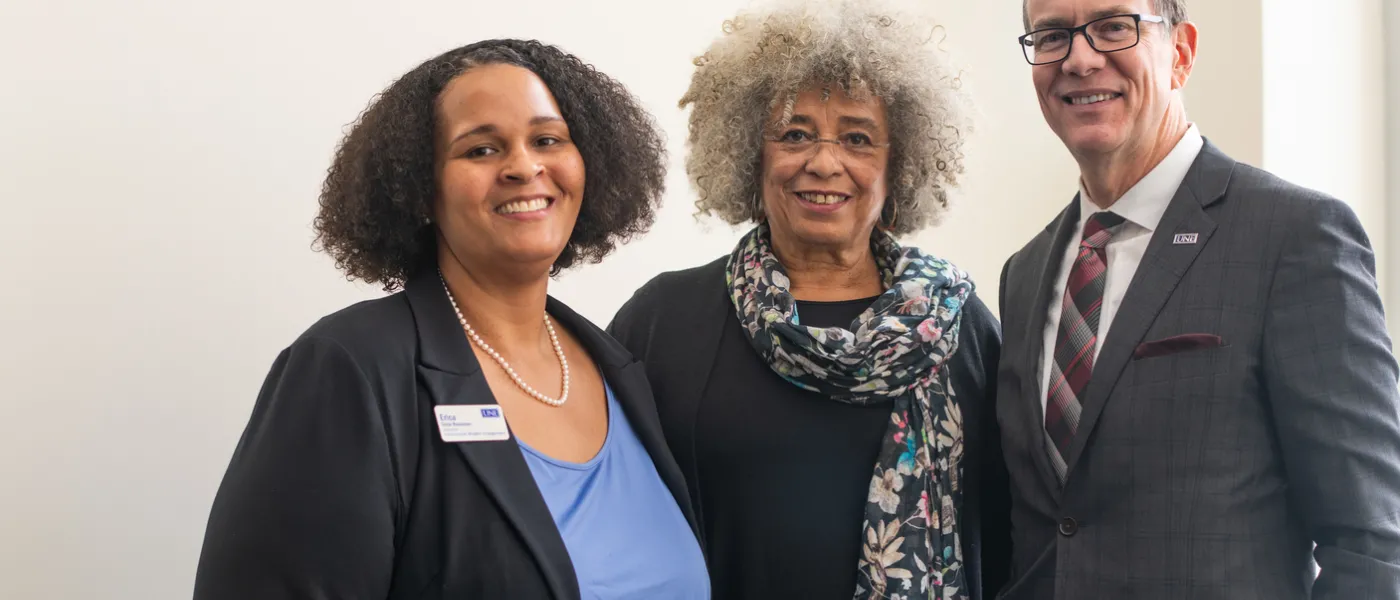
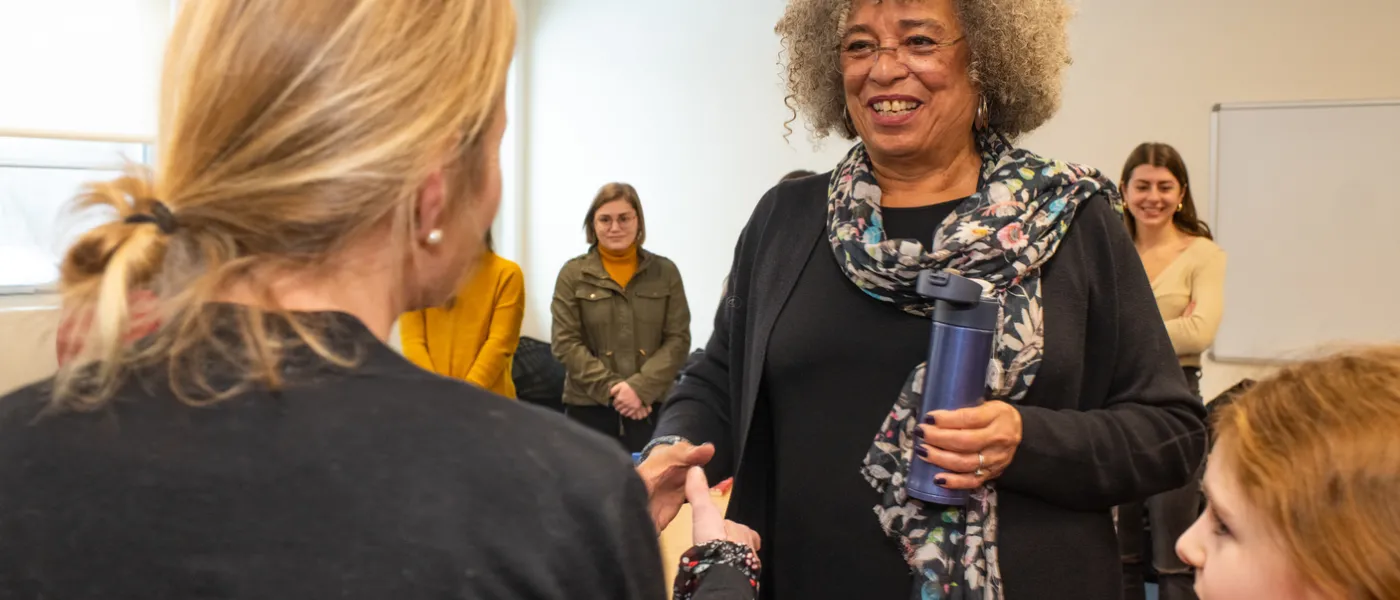
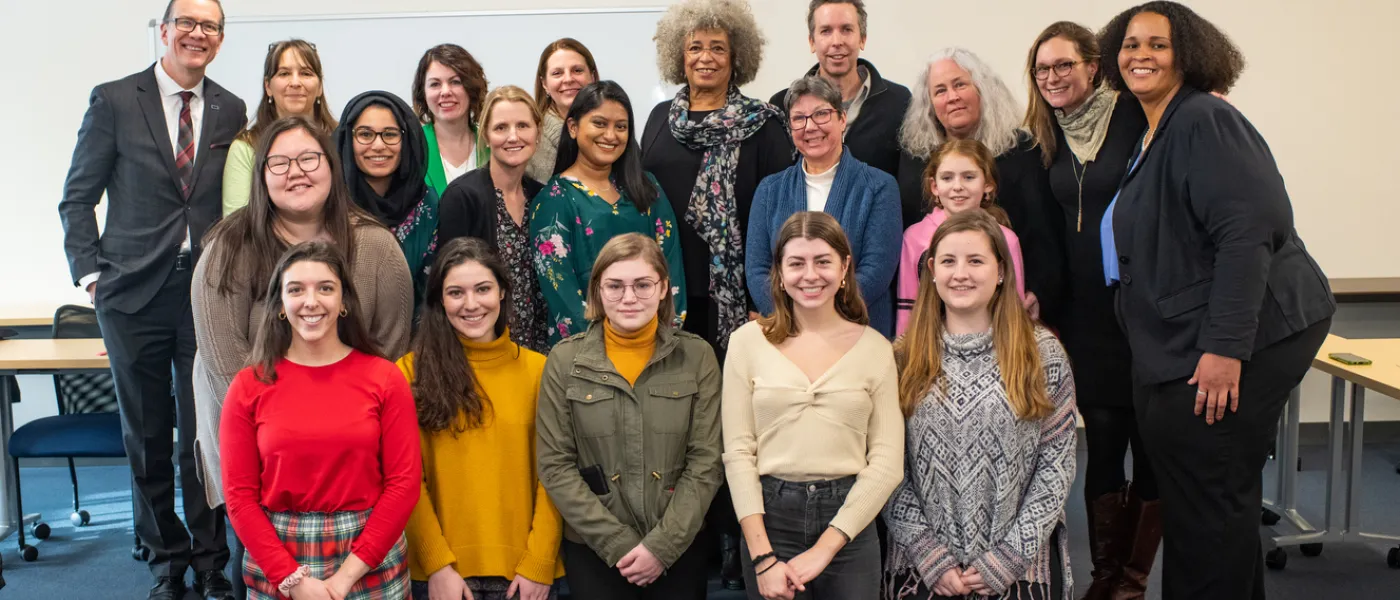
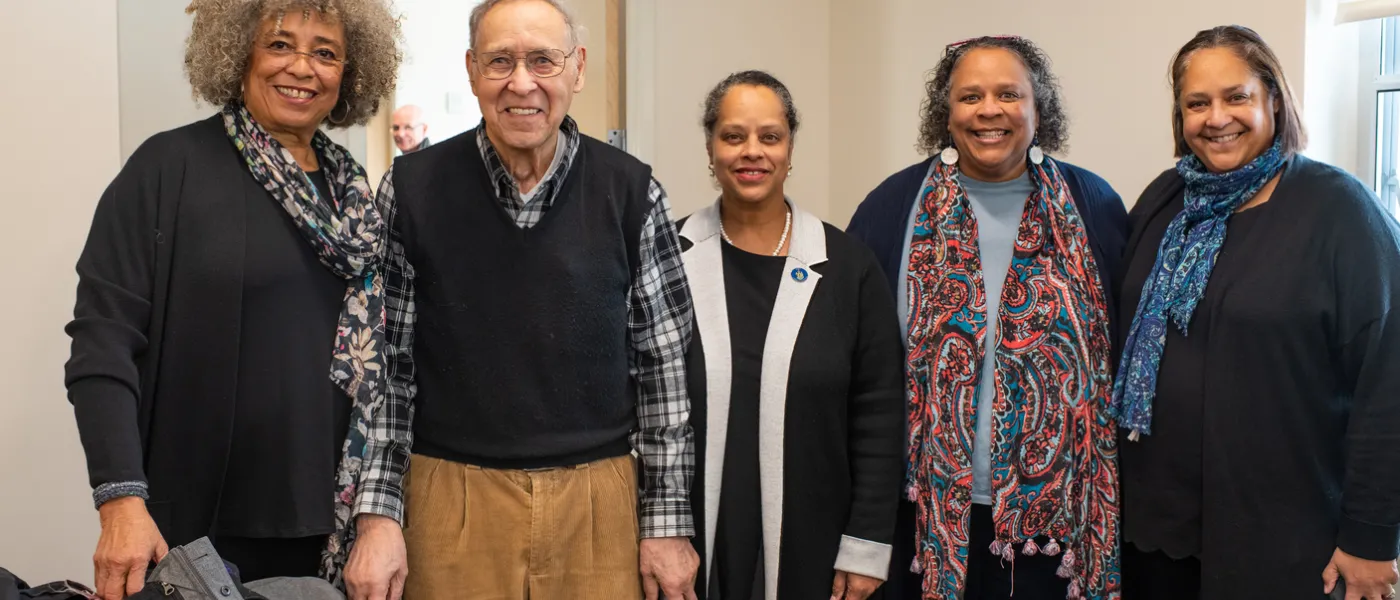
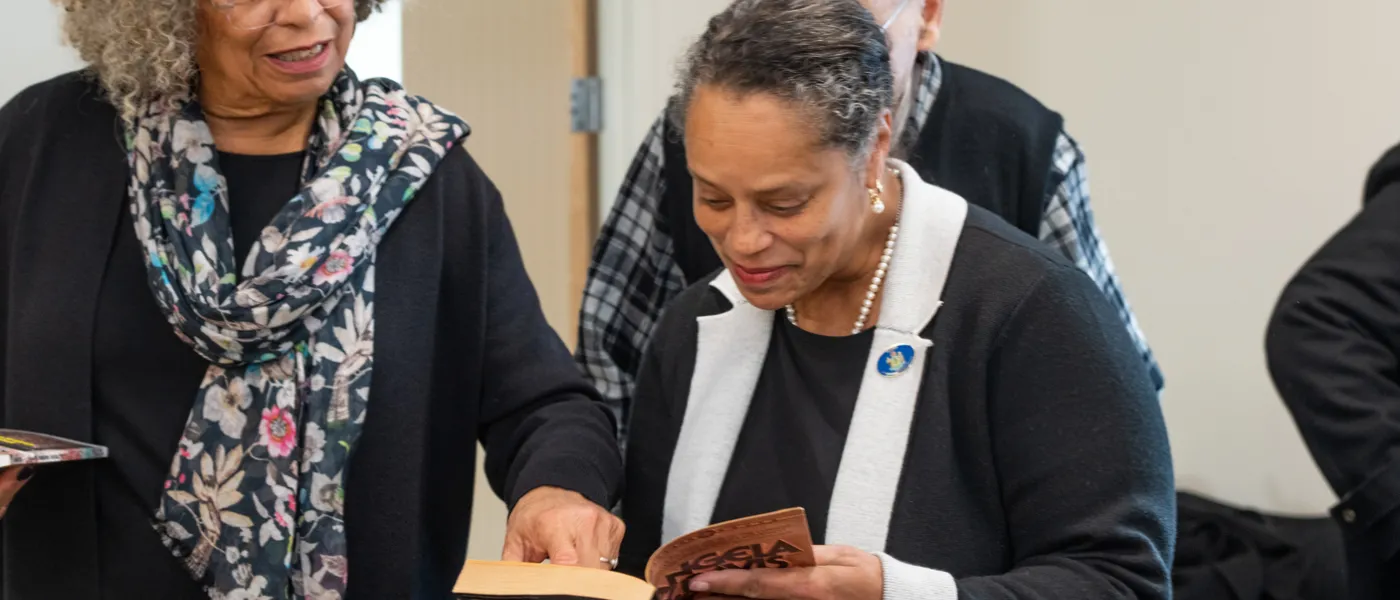
She also expressed her view of the prison system as both a gendering apparatus as well as a systematic implementation of state violence, pointing out the absurdity of relying on a violent system to remedy the social problem of violent behavior. “How ridiculous is it to assume that the violent institution of a prison can solve problems of violence?” she pondered.
Davis highlighted the connections between the prison system and both racism and gender violence. “If we want to eradicate gender violence from our worlds, we have to address the conditions surrounding those who are most subject to violence,” she said, referring to disabled women and transgendered women of color.
“How does our view of gender roles change if we look at it from the point of view of [minority] women, who are much more likely than any other group to be in prison?” Davis asked the audience.
At the conclusion of the keynote, Davis fielded questions from the crowd and then participated in a meet-and-greet with several UNE student groups, including the Cultural Council, Alliance, the Franciscan Faithful, InterVarsity Christian Fellowship, the Muslim Student Association, the Black Student Union, the UNitEd Multicultural Club, and the Women’s and Gender Studies Club. The students, says Rousseau, were “blown away” by Davis’ intelligence, confidence, and her graciousness toward them.
“She really does seem to have a thirst for speaking to young people,” Rousseau notes.
But beyond contributing to political discourse and inspiring students, the act of hosting Angela Davis at UNE held very special meaning to Rousseau. “She is my hero,” Rousseau beams. “She is someone we would talk about at the dinner table growing up. She’s always been someone who I admired and looked up to.”
Rousseau says that both sets of her grandparents were interracial couples during a time in the United States when such relationships were illegal, and both of her parents were raised in segregated communities. “That’s something that we talked about on a regular basis,” she shares. As a young girl, she says it was her mission to learn about black women who profoundly affected society, and that, of course, included Angela Davis. “I became fascinated with women, particularly women that looked like me—who changed our world and who served their communities,” she explains. “And I really built my life around that. It really shaped me as a young person.”
Her pivotal role in securing Angela Davis as a speaker brought Rousseau immense satisfaction as both an educator who seeks to shed light on the cause of social justice and on a personal level as an admirer of someone she considers one of social justice’s greatest advocates. “This event went exactly how I wanted it to go,” she notes with an evident sense of fulfillment.
With the record crowds it drew, the day was one of great significance in UNE history, one that will go down in the books alongside Dr. Martin Luther King Jr.’s visit to campus in 1964. To the students who had the opportunity to meet with Davis, the day will undoubtedly stand out among their college recollections as a momentous and inspirational occasion. And to Rousseau, it will not only be a professional accomplishment but the attainment of a deeply personal dream that she did not ever expect to be realized.
“It was one of the best days of my life,” she says.
